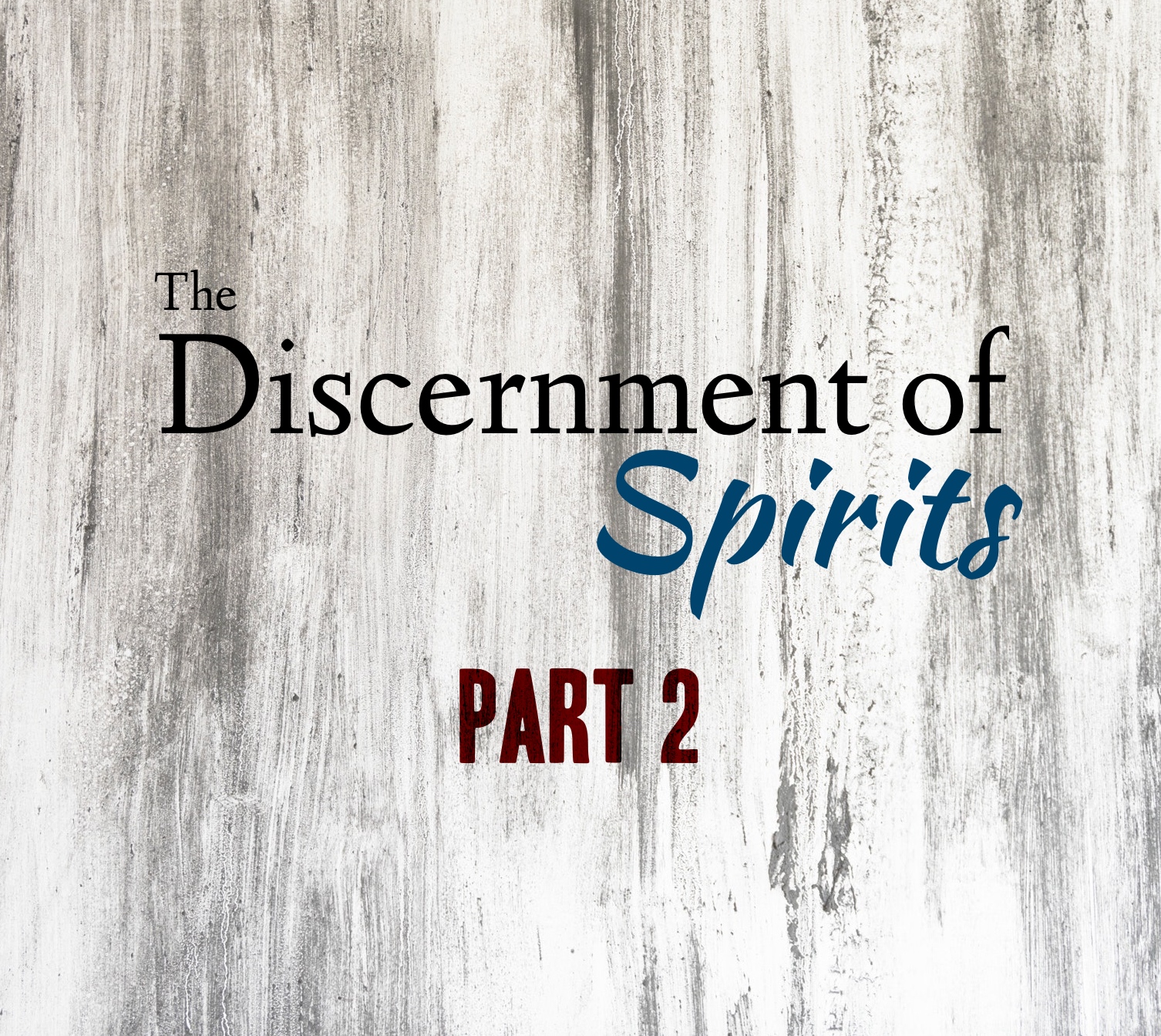This is part two of a three-part series on St Ignatius’ Rules for the Discernment of Spirits. Read part one here.
Let’s begin talking about Ignatius’ Rules for the Discernment of Spirits. One thing we should make clear first: When it comes to decisions of any kind, we’re generally not talking about choosing between clearly good and evil choices. Do I steal the company’s money or not? Do I cheat on my wife or not? Ignatius says that’s generally pretty clear… More often than not the choices that are before us are between good things, which is why it can be so challenging to make a decision. And the ways the evil spirit tries to draw us away from God tends to be subtle and amidst the various good choices we’re making.
Ignatius’ Rules for the Discernment of Spirits is found in the Spiritual Exercises, a 30-day retreat for one who wants to grow deeper in relationship with God. An element of the retreat is on discernment and decision-making. Ignatius provides this list of rules as a pre-cursor to any actual choice-making. He wants us to know and understand the ways God communicates with us interiorly so we will be better equipped to make sense of any decisions before us.
There are four ways Ignatius’ rules help us. First, they help us become aware of our inner life. Second, they help us understand what those inner movements mean, where they come from, and where they are leading us. Third, they help us judge the right course of action — in other words, how we’re to respond to those interior movements. And finally, Ignatius’ rules help us to know how to act in times of consolation and desolation.
There are two lists of rules. The first set contains 14 rules which are presented below. I would call these general guidelines for understanding how the good and evil spirit works – in other words, what are the basic tactics of the good and evil spirits.
As we go through these rules I invite you to consider what comes up within you as you read these. Perhaps you’ve experienced the good or evil spirits work in these ways before. The first two rules give us a general foundation, a picture of how the spirits work with someone who is moving away from God and someone who is moving closer to God.
RULE 1
For those moving away from God, or spiritually regressing, the evil spirit tries to convince us that evil is good. It will make self-centred behaviour seem appealing and comfortable. The good spirit, on the other hand, will sting our conscience, raise doubts about the path one is taking, and encourage a different course.
RULE 2
For one who is spiritually maturing and growing closer to God, the spirits use the opposite tactics. The evil spirit will give us doubts about our path, create within us a false sadness about the things that will be missed, and discourage us from our movement toward God. On the other hand, the good spirit will console and encourage our path through peace and joy.
I spent two and a half years as a Jesuit, and when I was discerning to leave religious life I had all these thoughts within me about what I would be losing if I left – community, ministry opportunities, free meals (!), educational opportunities… There was a sort of sadness, which was real, but it caused me to put off making a decision. It paralysed me. It gave me doubts. When I eventually decided to leave the Jesuits I found a great peace and joy, a sign of the good spirit working.
The next two rules are Ignatius’ definitions of consolation and desolation:
RULE 3
Spiritual consolation is an increase in faith, hope, love, and interior joy; growing toward God; inflamed with love and peace in one’s Creator. All is seen in the context of God, the giver of all good gifts. We may even be moved to tears because of our sins and failures, yet consoled because we know we have an infinitely compassionate and loving God. In consolation we may feel moved to serve and love God more deeply.
RULE 4
Spiritual desolation is the opposite of consolation. We may find ourselves weighed down by a darkness of the soul, feel disquiet, not feeling hope and love. There may be a dryness in prayer or a feeling of separation from our Creator. In desolation we may feel despair or selfish, with little desire for the things of God.
Consolation and desolation are not only a state of spiritual being, but a language that prompts us to something, which Ignatius addresses in the next several rules. First, Ignatius gives us some guidelines on what we should do when we’re in that state of desolation, that time when God feels absent.
RULE 5
In desolation the evil spirit is trying to derail us and cause us to divert our path from God. Therefore, this is not a time to change or make new decisions. We must stay with decisions we had formerly made in peace and consolation.
Think about a couple in a long-term dating relationship where things just aren’t feeling right. There’s a dryness, a distance between them. This would not be the right time to say, “Let’s get married. Maybe that will make things better.” Desolation is not a time to make rash and quick decisions because your heart is not in a place to make good choices.
RULE 6
While we shouldn’t run from the pain, we shouldn’t be passive. Become active against the desolation by praying more, making an examination of our lives, caring for ourselves through exercise and healthy eating, or doing good works for others. In short, move your focus from yourself to others. Know that desolation is temporary and will pass (and it’s not the same as depression – which is long term and might require professional treatment).
If the evil spirit is causing this desolation, being outwardly focused, resisting selfishness, is the opposite of what the evil spirit is trying to do.
RULE 7
While God may seem absent in desolation or doesn’t seem to care much for us, we must remind ourselves that the opposite is actually true. God is present, loving us, whether or not we feel that presence in the moment.
RULE 8
Have patience in desolation, knowing that it will pass. We can remind ourselves that consolation has come to us in the past and will come to us again.
Now why do we suffer desolation? We know God doesn’t actively cause it. Remember, this is all about push and pull between the good and the evil spirit. In his 9th rule, Ignatius gives us three reasons we may be suffering desolation. It would be a good time to examine our lives and our hearts to see if we can discern what the reason may be.
RULE 9 (Possible causes of desolation)
1. We may have grown tepid in our spiritual life, given into a selfish desire, or neglected our relationship with God in some way.
I’ve noticed recently a bit of this distance from God. And I realise that I’m just not intentionally making the time for prayer. I get caught up with other things and put prayer on the back burner, neglecting that relationship. Sometimes it just takes a little intentionality to return to that place of consolation.
2. It is a sort of trial of faith, testing our patience and commitment to God despite any dryness, darkness, or absence of spiritual gift. Do we love God or just love God’s gifts?
The common story is Job, who was undergoing a test by the evil spirit. The evil one, named as the satan, said to God that Job was only good because God gave him so many gifts. What we learn is that Job loved God and stayed committed to God even when all those gifts were taken away.
3. It is a reminder of our reliance on God and that consolation is a gift, not something we can own or control.
Sometimes there may be not much of an explanation. Nonetheless, it reminds us that we’re not in control, and the spiritual life is not always warm fuzzies.
Next Ignatius offers two points on consolation:
RULE 10
When in consolation we ought to remind ourselves that we may find ourselves in desolation in the future, so we should cherish this time and remember the graces of it the next time we find ourselves in desolation.
Maybe you find yourself in consolation at a particular moment – journal about it! I often find it helpful to go back to past journals as a reminder of the consoling graces God has given me. It’s an assurance that consolation has ebbed and flowed throughout my life, but that God has never abandoned me.
RULE 11
Acknowledge the gift of consolation in gratitude and humility, knowing that all good gifts come from God.
Ignatius, in his writings, uses the word humility a lot. It’s to counter the word pride, which he calls a tactic of the evil spirit. You’ll see that Ignatius, the good military commander he was, is always trying to figure out a good counter attack to the evil spirit’s tactics. In one meditation in the Spiritual Exercises he says that evil tries to get us to focus on riches, honour, and pride, while Christ calls us to a life of poverty, lowliness, and humility – the opposites. The evil spirit tries to get us to stop praying, so Ignatius says, counter by praying!
And so Ignatius concludes his list of basic rules with three metaphors that can help us discern how the spirits work.
RULE 12
The evil spirit is like a spoiled child or a bully. Give in and give them what they want and they’ll only demand more. The evil spirit can exploit when it senses you’re weak or your guard is let down. So stand firm in courage. There’s no need to give in or fear the bully.
RULE 13
The evil spirit is like a false lover who uses and objectifies others for their own selfish ends. They want the affair to be kept secret and in the dark. Our tactic against the evil spirit is to bring our fears and temptations into the light by sharing them with a trusted friend, a confessor, or a spiritual director.
When I was in high school there was this girl I liked and I asked her on a date to the movies. When we got there she said that we could date but asked me to keep our relationship secret – she claimed she just didn’t want anyone to talk or gossip. “Are you ashamed of me?” I asked. She denied it but I wondered. I realised that something’s up when you’re asked to keep something in the dark.
Or consider those in political power who seek to hide the reality of those who are marginalised or suffering. They change the subject or distract with something they claim is more important. It’s a tactic of the evil spirit to cover up, hide, and distract from the truth.
RULE 14
The evil spirit is like a military commander who discerns the weak points in their enemy’s defences in order to attack. Self-knowledge and humility is important to resisting this attack. An unhealthy amount of pride or complacency makes us even more blind to our weak points.
It’s no surprise that Ignatius ends with a metaphor he fully understands. And again he mentions that word humility. We need to be humble enough in order to recognise those places we’re weak where the evil spirit can covertly attack. If we’re too prideful or we become complacent we’re even more blinded. Just think of those in the public eye, politicians who wear their pride yet are so unaware of their blindspots.
There are lots of ways to grow in self-knowledge. One way is the Examen prayer. There are also various personality typing models which may be helpful for some, giving them the language to name their strengths and weaknesses. I find the Enneagram helpful because it begins by helping us name our downfalls and weaknesses so that we can grow in self-knowledge and improve.
Next week we’ll explore Ignatius’ second set of rules, which reveal the more subtle ways the good and evil spirits act on us. You can download a PDF of the first set of rules mentioned above by clicking here.
Read part-three by clicking here.
Listen to the podcast version of this post…









Muchas gracias.